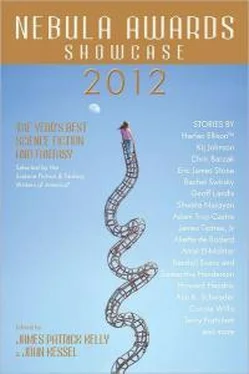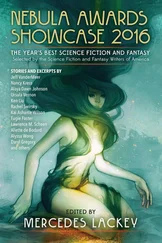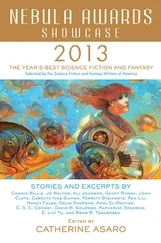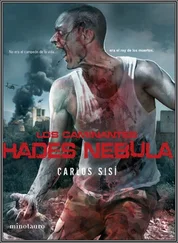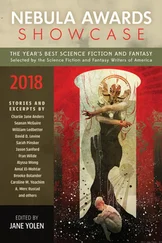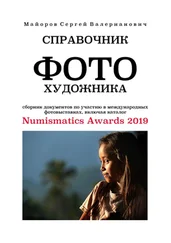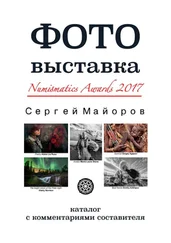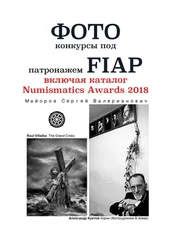Nebula Awards Showcase 2012
Здесь есть возможность читать онлайн «Nebula Awards Showcase 2012» весь текст электронной книги совершенно бесплатно (целиком полную версию без сокращений). В некоторых случаях можно слушать аудио, скачать через торрент в формате fb2 и присутствует краткое содержание. Год выпуска: 2012, ISBN: 2012, Издательство: Pyr, Жанр: Фантастика и фэнтези, на английском языке. Описание произведения, (предисловие) а так же отзывы посетителей доступны на портале библиотеки ЛибКат.
- Название:Nebula Awards Showcase 2012
- Автор:
- Издательство:Pyr
- Жанр:
- Год:2012
- ISBN:978-1-61614-619-1
- Рейтинг книги:3 / 5. Голосов: 1
-
Избранное:Добавить в избранное
- Отзывы:
-
Ваша оценка:
- 60
- 1
- 2
- 3
- 4
- 5
Nebula Awards Showcase 2012: краткое содержание, описание и аннотация
Предлагаем к чтению аннотацию, описание, краткое содержание или предисловие (зависит от того, что написал сам автор книги «Nebula Awards Showcase 2012»). Если вы не нашли необходимую информацию о книге — напишите в комментариях, мы постараемся отыскать её.
Nebula Awards Showcase 2012 — читать онлайн бесплатно полную книгу (весь текст) целиком
Ниже представлен текст книги, разбитый по страницам. Система сохранения места последней прочитанной страницы, позволяет с удобством читать онлайн бесплатно книгу «Nebula Awards Showcase 2012», без необходимости каждый раз заново искать на чём Вы остановились. Поставьте закладку, и сможете в любой момент перейти на страницу, на которой закончили чтение.
Интервал:
Закладка:
Nebula Awards Showcase 2012
Ed. by James Patrick Kelly & John Kessel

No copyright  2012 by MadMaxAU eBooks
2012 by MadMaxAU eBooks
Introduction
IN WHICH YOUR EDITORS CONSIDER THE NEBULA AWARDS OF YESTERDAY, TODAY, AND TOMORROW
James Patrick Kelly and John Kessel
Jim: When you compare the very first Nebula ballot to our 2011 ballot, you see a lot of differences. One is that the 1966 ballot was much, much longer— there was no preliminary winnowing back then. For example, Nebula voters had to choose a winner from thirty-one nominees in the short story category alone! This year there are just twenty-six nominees in the four fiction categories combined. Another difference was that there were just four awards given, Novel, Novella, Novelette, and Short Story. No Ray Bradbury Award for Outstanding Dramatic Presentation or Andre Norton Award for Young Adult Science Fiction and Fantasy. The Bradbury was started in 1992, but then went dormant until it was rebooted in 1999. The Norton was first given in 2006. Another difference was that there was just one woman nominated in any category: Jane Beauclerk, a pseudonym for M. J. Engh. Yikes! Note that the 2011 ballot has more women than men. And all five winners in 1966 were science fiction stories, as were the vast majority of the nominees. For the record, the winner for best novel was Frank Herbert’s Dune , the tied winners for novella were “The Saliva Tree” by Brian W. Aldiss and “He Who Shapes” by Roger Zelazny, the novelette category was won by Zelazny’s “The Doors of His Face, the Lamps of His Mouth,” and the short story award went to Harlan Ellison’s ‘“Repent, Harlequin!’ Said the Ticktockman.” In the four plus decades since, we have seen a proliferation of subgenres in our little corner of literature, but clearly we have nominated more fantasy than science fiction this year.
Of course, in 1966 there wasn’t nearly as much fantasy as science fiction being published. So you would expect the Nebulas to track a publishing trend that reflects changes in popular tastes. And the two of us have certainly written plenty of fantasy, even though we’re primarily known as science fiction writers. So has the rise of fantasy been at the expense of science fiction?
John: “At the expense of. . .” is a loaded phrase; after all, this is now the Science Fiction and Fantasy Writers of America. But even then I think the answer is not simple. The geography of our genre(s) has changed drastically over the last forty-five years, and the consequences are evident everywhere. Consider, as a minor example but a reflection of the larger movement, the term “speculative fiction.” In both 1966 and 2011 the term was in widespread use, but its meaning has changed drastically. In 1966 it was already in its second incarnation. Originally the term was coined by Robert Heinlein (in 1947) to describe a subset of science fiction extrapolating from known science and technology; what he meant by it is what we today essentially mean by science fiction. By 1966 the term was being hijacked by New Wave writers and editors—notably by Judith Merril— to indicate SF that de-emphasized the science and focused on sociological extrapolation and stylistic experimentation. Today “spec fic” has lost almost all rigor and is used as an umbrella term to describe any fiction, SF or fantasy or horror or slipstream, that is not mimetic fiction. So Vernor Vinge and N. K. Jemisin and Kelly Link and Paolo Bacagalupi and Holly Black and China Miéville are all “speculative fiction” writers in one big happy family.
Or is the family such a happy one? As many commentators have noted, there is no longer an easily identifiable center that can be used to, say, identify all the stories nominated for the Nebula Award in any year. Hard science stories compete with liminal fantasies, which compete with horror fictions, which compete with sociological extrapolations, which compete with nostalgic exercises in pulp adventure. Many SF writers bemoan the very fact you note, that fantasy is overwhelming science fiction in sales and popularity, and that the things that are called science fiction today would not have passed muster as SF in John W. Campbell’s Astounding. But perhaps it’s only the dinosaurs who have even heard of John W. Campbell. Is the field losing all coherence, or are these changes just the natural effects of time passing and the world changing? Is any of this something that Nebula voters and readers should worry about? Does the reader who picks up this volume have any reason to know what she is going to get when she reads its contents?
Jim: It’s a good question. The boundaries of “speculative fiction”—or as the critic John Clute calls it, fantastika —have expanded to include a lot of literary territory. But to mix metaphors, I actually like the “Big Tent” we’ve set up for our readers here. It fits with my own writerly sensibilities, and yours as well, I’ll bet. Sure, fantasy and its many subgenres have captured some readers who might once have been exclusively science fiction fans, but I like to think that many fantasy readers retain a lively interest in what’s happening in SF—and vice versa. Certainly there are editors who publish short fiction in print and online who still welcome a variety of genres to their table of contents. Many of the short fiction nominees first appeared in magazines featuring stories that are as likely to explore Venus as they are to visit Faerie. I wonder if speculative fiction’s many awards, but the Hugo and Nebula especially, are not the center of our sprawling genre, at least at this point in history. Were the science fiction novels of Connie Willis and Paolo Bacigalupi awarded Nebulas in 2010 and 2009 respectively? Well, Ursula Le Guin’s fantasy and Michael Chabon’s alternate history took the novel Nebs in 2008 and 2007. So if we’re keeping score, which genre is ahead? Fantasy or science fiction?
My answer is yes.
John: When the Nebulas were founded there were two reasons for their founding, and I think the difference between those reasons is illuminating and still relevant. Science Fiction Writers of America was a fledgling organization, dedicated to improving the situation of SF writers, but it had no money. Lloyd Biggie, the SFWA secretary-treasurer, suggested that SFWA sell an annual anthology to publishers with the proceeds going to support the organization. This rapidly became a plan to create a new SF award, voted on by writers, and thus the Nebulas were born. But the other reason, according to Damon Knight, was to improve the breed, to “show the quality of modern science fiction, its range, and ... its growing depth and maturity.” Knight was a critic and teacher as well as an editor and writer, and I believe he saw the Nebulas not simply as a way to honor the best work in the field, but to encourage writers to set their sights higher.
In the event, the trophies cost more than the amount raised by the anthology. But what of Knight’s other purpose? Have the awards spurred us on to write better SF and fantasy? Have they been good for the reputation of the genre?
I think it’s demonstrable that some of the best work written in the last forty years has been recognized by the Nebulas. And the awards have gone to grizzled old pros and to newcomers, to Ursula Le Guin’s Powers, published in the forty-eighth year of her career, and to Ted Chiang’s “Tower of Babylon,” the first story he ever published. To classics like Dune , The Left Hand of Darkness, Neuromancer, “Aye, and Gomorrah,” “When it Changed,” “Houston, Houston, Do You Read?” “Beggars in Spain,” “Bears Discover Fire,” “Fire Watch,” “Behold the Man,” “R&R,” and “Magic for Beginners.” To names who could not be more famous (Isaac Asimov) and to those who could (Jack Cady). I find it reassuring that the race does not always go to the best-known competitor; that every year there are new names on the final ballot.
Читать дальшеИнтервал:
Закладка:
Похожие книги на «Nebula Awards Showcase 2012»
Представляем Вашему вниманию похожие книги на «Nebula Awards Showcase 2012» списком для выбора. Мы отобрали схожую по названию и смыслу литературу в надежде предоставить читателям больше вариантов отыскать новые, интересные, ещё непрочитанные произведения.
Обсуждение, отзывы о книге «Nebula Awards Showcase 2012» и просто собственные мнения читателей. Оставьте ваши комментарии, напишите, что Вы думаете о произведении, его смысле или главных героях. Укажите что конкретно понравилось, а что нет, и почему Вы так считаете.
